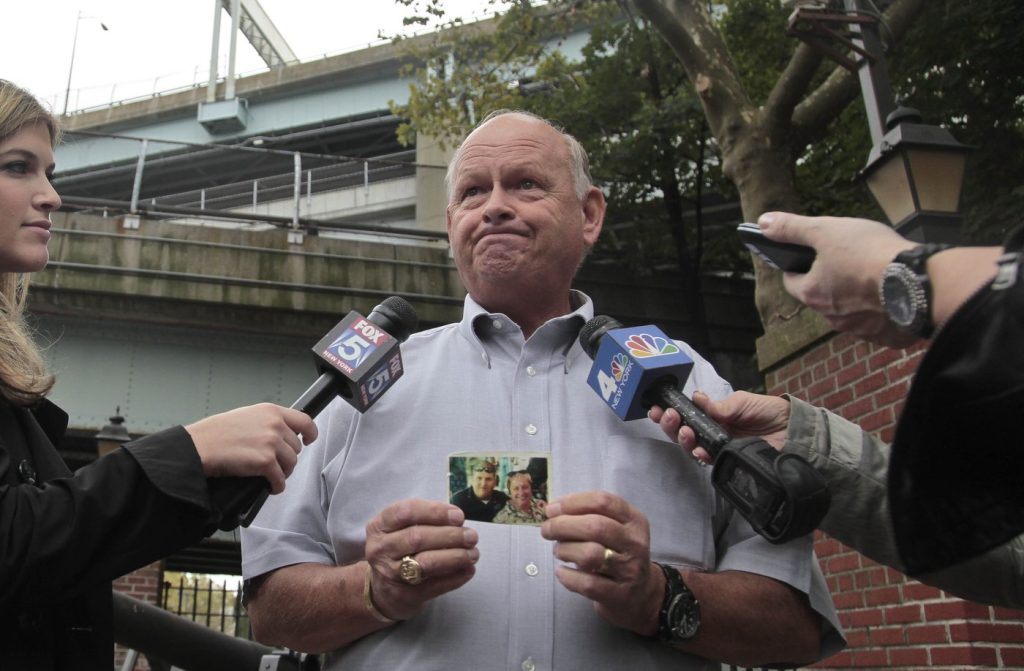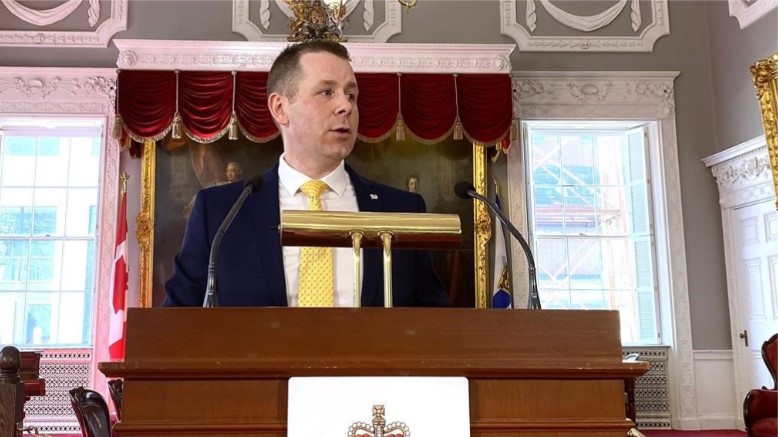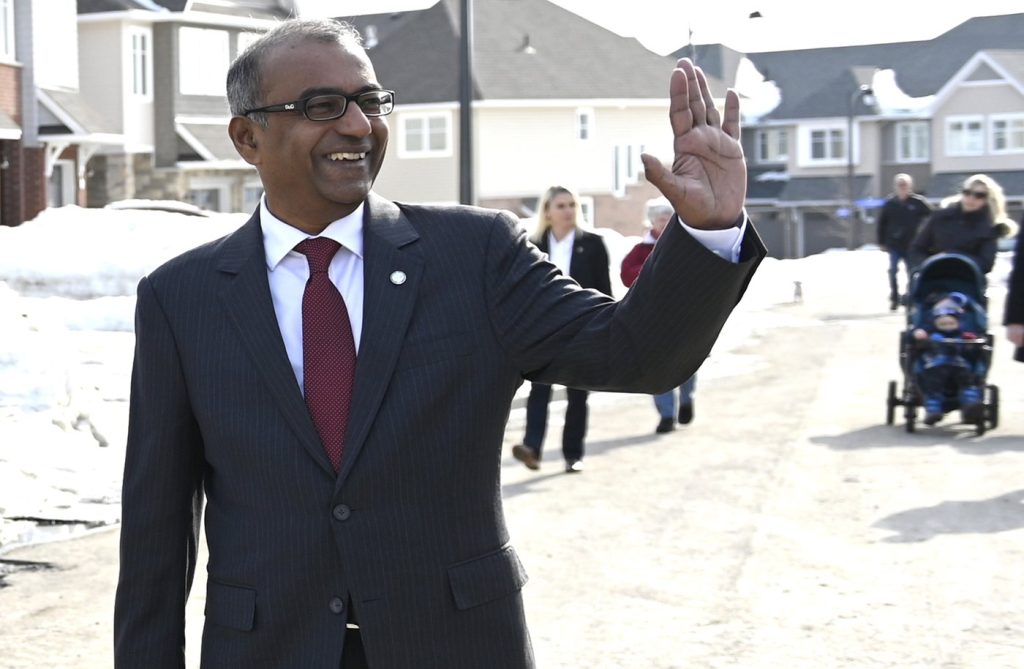A contentious push to wrap up the 9/11 prosecutions takes an emotional toll on victims’ families

Posted Jan 9, 2025 01:06:27 PM.
Last Updated Jan 9, 2025 09:31:19 PM.
NEW YORK (AP) — After his only child was killed on 9/11, Ken Fairben looked for justice in a far-off military courtroom on the Guantánamo Bay naval base in Cuba.
He traveled there multiple times to observe hearings for accused Sept. 11 mastermind Khalid Sheikh Mohammed and co-defendants, and Fairben has watched other proceedings via closed-circuit video at a military facility near his Long Island home.
He has gotten to know other victims’ families on these journeys and taken pained note of the plaque on a wall of a Guantanamo trailer where relatives take court breaks. The sign bears the names of several loved ones who have died while the case has ground on.
After nearly two decades of turns, delays and emotionally exhausting flux, Fairben and his wife, Diane, now will have to wait longer to see whether Mohammed pleads guilty in the al-Qaida hijacked-plane attacks of Sept. 11, 2001. The attacks killed nearly 3,000 people, including paramedic Keith Fairben, at New York’s World Trade Center, the Pentagon and a Pennsylvania field.
Mohammed had been scheduled to enter his plea Friday, but an appeals court Thursday temporarily blocked the plea deals for him and two co-defendants. The federal government had negotiated but then disavowed the deals, while defense lawyers want the plan to go forward. So does Ken Fairben, who had planned to be at a Long Island military site Friday to watch.
“I, honest to God, thought that we were going to have some — I don’t like ‘closure’ — but some forward motion, something definite,” he said after hearing the news.
“It’s just so frustrating. It’s absolutely heartbreaking,” added Fairben, who emphasized that he speaks only for himself.
Among Sept. 11 survivors and victims’ relatives, the potential end to the drawn-out, fraught case stirred a range of feelings: uncertainty, hope, anger, gratification, resignation and a thirst for more answers about how the attacks were arranged and financed.
Some families are dismayed by the plea agreements. They would take death sentences off the table and short-circuit the possibility of a trial — a prospect that’s particularly upsetting to those who see a trial as a key source of information.
“Doesn’t the American public, as well as the victims’ families, deserve to hear the evidence we have against these individuals?” asks Gordon Haberman, who has traveled to multiple Guantanamo hearings from his Wisconsin home but finds travel physically difficult now. His daughter, Andrea, was in New York for a business trip when she died in the World Trade Center attack.
Congressional intelligence committees and, later, an independent, bipartisan commission, investigated the attacks and released findings in the early 2000s. In recent years, a secret chapter of the congressional inquiry and some FBI documents have been declassified and released.
Some survivors and victims’ relatives believe a Guantanamo trial could shake loose more information, particularly about whether the Saudi Arabian government backed the hijackers.
That’s the question at the heart of a lawsuit some families are pursuing in a federal court in New York. The kingdom denies involvement, and information the U.S. has released doesn’t provide proof that senior Saudi officials were complicit.
Brett Eagleson, a son of Sept. 11 victim John Bruce Eagleson, sees the potential Guantanamo plea deals as a betrayal and part of a “long and epic trail of failure” by the U.S. government to provide evidence to 9/11 families who are pursuing the Saudi claims.
The pleas would be “a sad day for America,” said Eagleson, who’s a plaintiff in the lawsuit and the president of a victims’ and survivors’ advocacy group called 9/11 Justice. He was a teenager when his father, a Connecticut mall manager who went by Bruce, was killed while at the World Trade Center on business.
Any potential trial before a military commission at Guantanamo would likely be complicated by the torture of the defendants while in CIA custody in the first years after they were apprehended. The pretrial hearings have focused largely on how the abuse may taint the overall evidence in the case.
To Eagleson, it’s infuriating that the issue has affected the viability of a trial. What happened to the defendants in custody isn’t 9/11 victims’ fault, he said.
Before the court put the plea deals on hold, Elizabeth Miller drove 5 1/2 hours in a looming winter storm to catch a military flight to Guantanamo in hopes of seeing Mohammed’s plea in person.
After several previous journeys to the arid, isolated military base to see him and other aging defendants sit through one pretrial hearing after another, she came to expect dysfunction and disappointment from the military commission. But she was excited to make the trip this time — and then crestfallen when the plea deals were halted.
“I really, truly believe this is the only way this will ever end,” Miller said by phone from Guantanamo. She was 6 when the 9/11 attacks killed her firefighter father, Douglas Miller.
She now leads a group of 9/11 families who support the plea deal and oppose any death penalty for the accused, and she noted that evidence would be presented during the sentencing phase.
Robert Reeg, a now-retired firefighter who was seriously wounded responding to 9/11, went over the years to Guantanamo to watch a pretrial hearing and to Washington to talk to lawmakers about the slow pace of the case. He wants to see it go to trial and views the prospective plea deals as “surrender.”
“These enemies think we’re weak and irresolute, and this kind of proves it,” he said.
Even before the plea deal was temporarily blocked, he didn’t plan to follow the news from Guantanamo moment to moment. He said he was too busy caring for his toddler granddaughter, and “I’ve had enough salt in my wounds.”
“At a certain point in time, you just have to be resigned,” he said. “All you can do is give your best effort, and I did. And I can live with that.”
___
Associated Press writer Ellen Knickmeyer in Washington contributed.
Jennifer Peltz, The Associated Press








